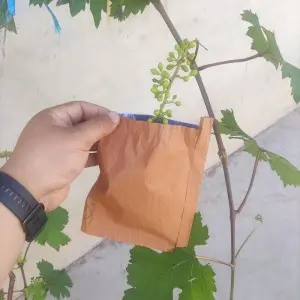dec . 24, 2024 09:48 Back to list
Exploring the Role of Apple Pollen in Enhancing Fruit Pollination Efficiency
The Importance of Apple Pollen for Pollination A Gateway to Fruitful Harvests
Pollination is a critical process in the life cycle of plants, particularly in fruit-bearing trees such as apple trees. Apple pollen plays an essential role in facilitating this process, ensuring that blooms develop into the delicious and nutritious apples we enjoy. Understanding the significance of apple pollen not only highlights the intricate relationship between flora and fauna but also underscores the importance of bees and other pollinators in agriculture.
The Role of Pollen in Plant Reproduction
Pollen is a fine powder produced by the male parts of a flower, containing the male gametes. In apple trees, the pollen is transmitted from the anthers of one flower to the stigmas of another via wind, insects, or other animals. This transfer is crucial for fertilization, enabling the formation of seeds and the growth of fruits. Fruits, in turn, play a vital role in the life cycle of the apple tree, as they contain the seeds necessary for reproduction.
Apples are not self-pollinating; they require cross-pollination from different varieties for optimal fruit set. This means that the presence of pollen from compatible apple tree varieties is essential for a successful apple harvest. Honeybees and other pollinators come into play here, as they are responsible for transferring the pollen from flower to flower, significantly increasing the chances of fertilization.
The Importance of Pollinators
Pollinators, especially bees, are indispensable for apple production. Studies have shown that apple orchards with healthy populations of pollinators yield more fruit and have improved fruit quality than those lacking such populations. The relationship between apple trees and their pollinators is symbiotic. While bees collect nectar and pollen for food, they inadvertently facilitate the pollination of the blossoms, leading to fruitful yields.
However, the health of pollinators is under threat due to various factors, including habitat loss, pesticide use, and climate change. The decline of bee populations poses a significant risk to apple production and agriculture in general. It is vital to implement practices that support pollinator habitats, such as reducing chemical applications, planting wildflowers, and promoting biodiversity in agricultural landscapes.
apple pollen for pollination

Cultivar Selection and Pollen Compatibility
When establishing an apple orchard, selecting the right cultivars is crucial for successful cross-pollination. Different apple varieties have varying blooming periods and pollen compatibility. Generally, it is recommended to plant at least two or three different cultivars to ensure that they bloom at overlapping times, allowing their pollen to interact effectively. Some popular apple varieties for cross-pollination include Honeycrisp, Granny Smith, and Fuji.
Successful pollination not only enhances the quantity of apples produced but also improves their overall quality. Factors like size, flavor, and texture are often influenced by the effectiveness of the pollination process. Therefore, understanding the dynamics of pollen transfer and the timing of flowering can lead to better orchard management and fruit quality.
Sustainable Practices to Boost Pollination
To maximize the benefits of apple pollen for pollination, growers can adopt various sustainable practices. One approach involves creating pollinator-friendly habitats around orchards. This can include planting native wildflowers, providing nesting sites, and using organic farming practices that minimize the negative impact on pollinator health.
Furthermore, understanding the ideal conditions for bee activity—such as temperature, humidity, and wind speed—can help growers optimize the timing of their management activities, such as pruning and spraying. Better timing can enhance pollinator activity during peak bloom periods, boosting the effectiveness of the pollination process.
Conclusion
Apple pollen is a vital element in the intricate process of pollination, playing a crucial role in the successful production of this beloved fruit. The relationship between apple trees and their pollinators is essential for ensuring bountiful harvests. As we face growing challenges to pollinator populations, it becomes increasingly important to adopt sustainable practices that support both apple production and the health of pollinators. By doing so, we not only secure our food supply but also foster a more resilient agricultural ecosystem for future generations.
-
High-Quality Oak Pollen for Allergy Research & Testing – Reliable Oak Tree & Live Oak Pollen Supplier
NewsJul.08,2025
-
Premium Pear Pollen for Pollination in Orchards in Taiwan – Reliable Factories, Manufacturers & Suppliers
NewsJul.08,2025
-
Premium Pollen Producer & Apricot Pollen Suppliers High-Quality Apricot Pollen Factories
NewsJul.07,2025
-
Premium Juniper Tree Pollen for Fruit Tree Varieties – Quality Assured by Leading Plum Pollen Manufacturers
NewsJul.07,2025
-
High Quality Elm Pollen Supplier - Fresh Elm Tree & Apricot Flower Pollen for Sale
NewsJul.07,2025
-
Premium Cherry Pollen for Sale – Fresh Cherry & Avocado Tree Pollen Supplier
NewsJul.06,2025